Filter by
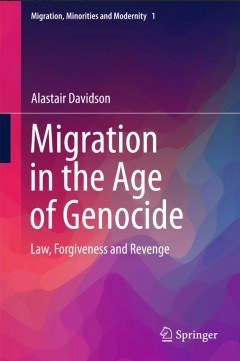
Migration in the Age of Genocide
This book presents a novel proposal for establishing justice and social harmony in the aftermath of genocide. It argues that justice should be determined by the victims of genocide rather than a detached legal system, since such a form of justice is more consistent with a socially grounded ethics, with a democracy that privileges citizen decision-making, and with human rights. The book cover…
- Edition
- 1
- ISBN/ISSN
- 978-3-319-21848-9
- Collation
- XIV, 216
- Series Title
- Migration, Minorities and Modernity
- Call Number
- -
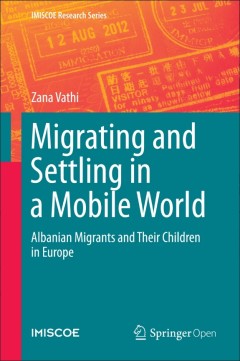
Migrating and Settling in a Mobile World:Albanian Migrants and Their Children…
This open access book draws on award-winning cross-generational research comparing the complex and life-changing processes of settlement among Albanian migrants and their adolescent children in three European cities: London (UK), Thessaloniki (Greece), and Florence (Italy). Building on key concepts from the social sciences and migration studies, such as identity, integration and transnationalis…
- Edition
- 1
- ISBN/ISSN
- 978-3-319-36635-7
- Collation
- XI
- Series Title
- IMISCOE Research Series
- Call Number
- -
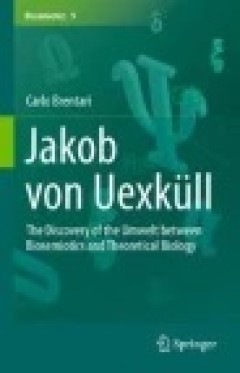
Jakob von Uexküll: The Discovery of the Umwelt between Biosemiotics and Theo…
The book is a comprehensive introduction to the work of the Estonian-German biologist Jakob von Uexküll. After a first introductory chapter by Morten Tønnessen and a second chapter on Uexküll's life and philosophical background, it contains four chapters devoted to the analysis of his main works. They are followed by a vast eighth chapter which deals with the influence Uexküll had on other …
- Edition
- -
- ISBN/ISSN
- 978-94-017-9688-0
- Collation
- -
- Series Title
- -
- Call Number
- -
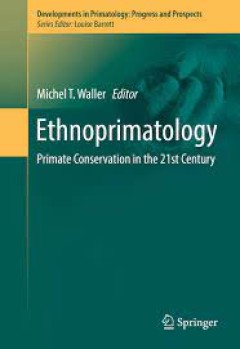
Ethnoprimatology Primate Conservation in the 21st Century
The list of challenges facing nonhuman primates in the 21st century is a long one. The expansion of palm oil plantations to feed a growing consumer class is eating away at ape and monkey habitats in Southeast Asia and Central Africa. Lemurs are hunted for food in the poorest parts of Madagascar while monkeys are used as medicine in Brazil. Traditional cultural beliefs are maintaining demand for…
- Edition
- -
- ISBN/ISSN
- 978-3-319-30469-4
- Collation
- 35 b/w illustrations, 31 illustrations in colour
- Series Title
- -
- Call Number
- -
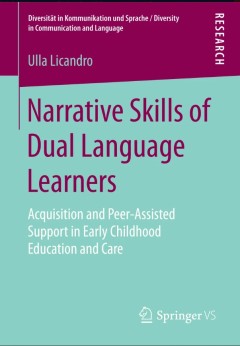
Narrative Skills of Dual Language Learners
The current work follows the premise that fictional oral narratives represent socio-emotionally and academically relevant communicative practices. Two studies are presented, aiming to (1) analyze the narrative skills of preschool-age Turkish-German dual language learners (DLLs) and (2) explore a peer-assisted approach to supporting DLLs’ narrative skills in early childhood education and care.…
- Edition
- 1
- ISBN/ISSN
- -
- Collation
- -
- Series Title
- -
- Call Number
- -
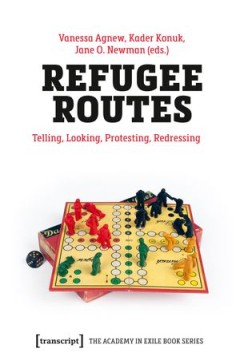
Refugee Routes: Telling, Looking, Protesting, Redressing
The displaced are often rendered silent and invisible as they journey in search of refuge. Drawing on historical and contemporary examples from Turkey, the Ottoman Empire, Iraq, Syria, UK, Germany, France, the Balkan Peninsula, US, Canada, Australia, and Kenya, the contributions to this volume draw attention to refugees, asylum seekers, exiles, and forced migrants as individual subjects with me…
- Edition
- -
- ISBN/ISSN
- 9783839450130
- Collation
- -
- Series Title
- -
- Call Number
- 351.81 REF r
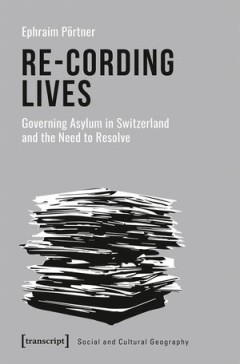
Re-Cording Lives: Governing Asylum in Switzerland and the Need to Resolve
Administrative asylum procedures are permeated by tensions between rationalities of legality, efficiency, and deterrence in asylum casework and their various effects on cases. Based on ethnographic research in the Swiss asylum administration, this book unveils the pragmatics and politics of rendering asylum cases resolvable by re-cording the lives of applicants in terms of asylum. With his read…
- Edition
- -
- ISBN/ISSN
- 9783839453490
- Collation
- -
- Series Title
- -
- Call Number
- 351.81 POR r
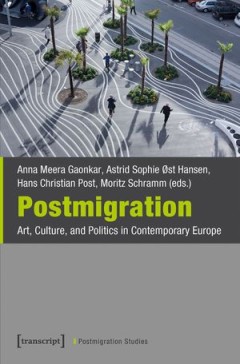
Postmigration: Art, Culture, and Politics in Contemporary Europe
The concept of »postmigration« has recently gained importance in the context of European societies' obsession with migration and integration along with emerging new forms of exclusion and nationalisms. This book introduces ongoing debates on the developing concept of »postmigration« and how it can be applied to arts and culture. While the concept has mainly gained traction in the cultural s…
- Edition
- -
- ISBN/ISSN
- 9783839448403
- Collation
- -
- Series Title
- -
- Call Number
- 351.81 POS p

Living in Refuge: Ritualization and Religiosity in a Christian and a Muslim P…
This comparative ethnography of a Muslim and a Christian Palestinian refugee camp in Lebanon focuses on contrasting social belonging processes through a ritualization approach. Leonardo Schiocchet argues that contrasts emerge out of the intersectionality of religiosity, nationhood, refugeeness and politics, and synthesizes academic research on piety and moral self-cultivation and on the everyda…
- Edition
- -
- ISBN/ISSN
- 9783839460740
- Collation
- -
- Series Title
- -
- Call Number
- 351.81 SCH l
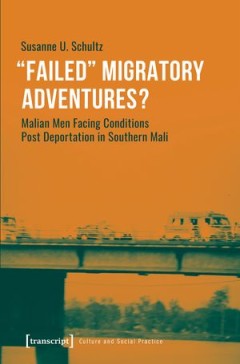
Failed Migratory Adventures?: Malian Men Facing Conditions Post Deportation i…
The effects of the intra-African and European deportation regimes brought about since the European Union's externalization of its migration and development policy by transferring it to countries of sub-Saharan Africa remain largely understudied - especially their effects on people's everyday life after forced returns. Based on extensive field research, Susanne U. Schultz's book analyses the sup…
- Edition
- -
- ISBN/ISSN
- 9783839460092
- Collation
- -
- Series Title
- -
- Call Number
- 301 SCH f
 Computer Science, Information & General Works
Computer Science, Information & General Works  Philosophy & Psychology
Philosophy & Psychology  Religion
Religion  Social Sciences
Social Sciences  Language
Language  Pure Science
Pure Science  Applied Sciences
Applied Sciences  Art & Recreation
Art & Recreation  Literature
Literature  History & Geography
History & Geography